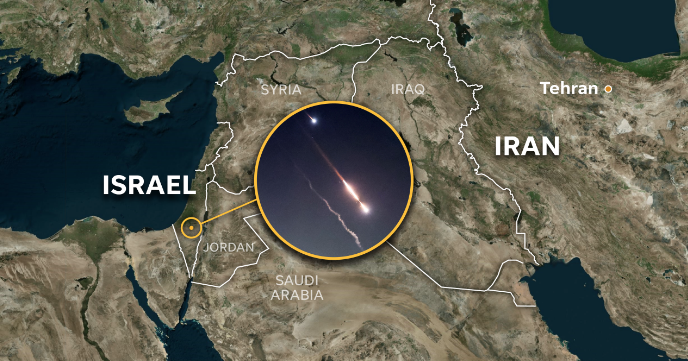Events over the weekend of the 13-14 April have seen rising tensions soar as Iran’s pre-publicised action in retaliation to Israel’s Syrian consulate attack took place hours after an MSC ship was hijacked by the Iranian Republican Guard.
Hours before Iran launched a massive and widespread attack on Israel for the first time, Iranian forces boarded the 15,000 TEU MSC Aries and forced the ship and its 25 crew into Iranian waters. MSC Aries is owned by Gortal Shipping Inc, which is affiliated with Zodiac Maritime Shipping Company.
Guy Platten, secretary general of the International Chamber of Shipping (ICS), said Ships trading in the Gulf region should liaise closely with the military so that they are fully protected from Iranian forces.
“Iran’s seizure of the MSC Aries is a flagrant breach of international law and an assault on freedom of navigation. This reprehensible attack against a merchant ship once again places innocent seafarers on the front lines of geopolitical conflict,” added Platten who called for the immediate release of the ship and its crew.
However, Iranian Foreign Ministry spokesman Nasser Kanaani told reporters that the ship had been arrested after violating “international shipping regulations and failing to respond appropriately to Iranian authorities.”
Escalation and broadening of the conflict between Israel and the Palestinians, following Hamas’s attack on Israeli citizens on 7 October was seen as unthinkable by western allies, the latest events appear to be bringing the world closer to just such a conflict.
Xeneta chief analyst Peter Sand told Container News: “This is another example of nation states attempting to weaponize international supply chains and that should be a cause for concern for us all.”
Container shipping would be far more concerned if this was the start of sustained and indiscriminate attacks, but this does not seem to be the case as container vessels continue to transit the Strait of Hormuz and the Gulf of Oman.
“Unless the situation deteriorates further, the seizure of MSC Aries is unlikely to result in the kind of supply chain disruption we have witnessed recently in the Red Sea and Gulf of Aden where almost any ship is at risk of attack by Houthi militia,” added Sand.
Regional tensions and uncertainties often see oil prices spiking, according to Dynamar analyst Darron Wadey, who adds: “We are in uncertain and frankly concerning territory at the moment.
“Crude was already creeping up in price since the end of last year, and the duration and strength of any spike will be determined by the subsequent actions of the players involved, principally Israel and Iran.”
According to Wadey, increased oil prices also raise the cost of physically moving commodities and products along supply chains and such a situation would clearly impact inflation negatively.
“Logically then, a sustained spike in the price of oil will ultimately have a knock-on effect upon demand for all manner of goods: simply put, there will be less money to go around on buying the ‘wants’ and ‘luxuries’ as more will have to be spent on the ‘essentials’.”
It is a theme that Sand also broached, but he was more upbeat than Wadey in his summation, although Sand agreed that the unpredictable nature of the situation made it very difficult to comment.
“Whenever there is uncertainty in the market there is the potential for ocean freight shipping rates to increase – as we have seen most recently following the escalation of conflict in the Red Sea. However, oil prices have not spiked as some feared they may do, and ships are seemingly sailing through the Strait of Hormuz without issues, so any direct impact on rates may be limited.”
Reuters reported today that oil prices had “drifted lower” as the risk of a wider confrontation eased.
Brent crude had jumped to over US$90/barrel after Israel’s attack on Iran’s Syrian consulate, from under US$81/barrel in mid-March and had settled at a little over US$89/barrel today. The West Texas Intermediary index showed a similar pattern at lower values.
Mary Ann Evans
Correspondent at Large







